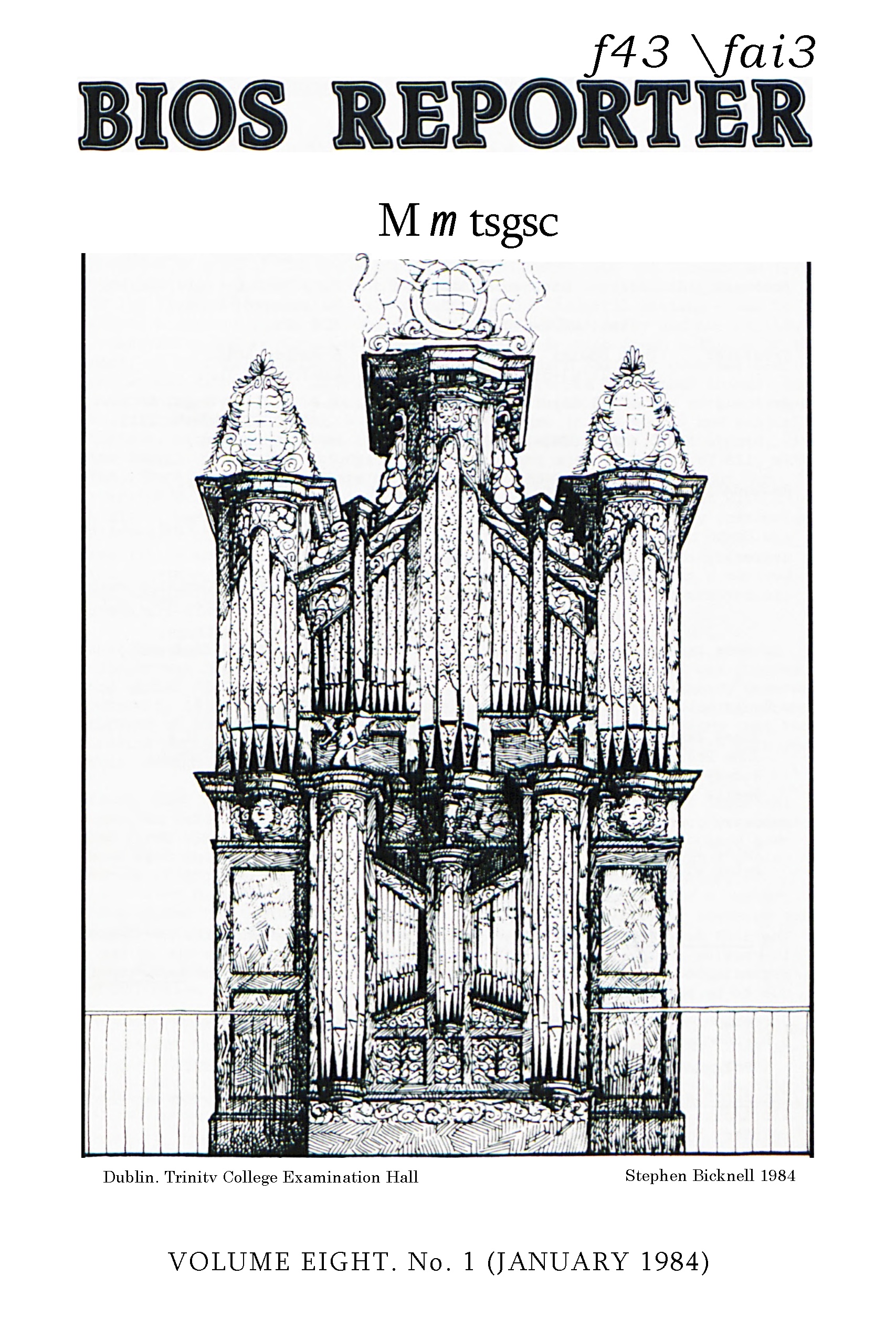It is no mistake that the word ‘Britain’ occurs in each of the four ‘Aims of BIOS’ which appear quarterly on the back page of this publication – “the Organ and its music in Britain”, “the history of the Organ in Britain”, “historic organs in Britain”, and so on. The appearance of the word ‘British’ in the society’s name is, too, significant of something more than the geographical location of most of the society’s activities. When BIOS was founded in 1976, the intention – perfectly clear to anyone who cares to study the programme of the first Conference, and the minutes of the Inaugural Meeting – was to create a society primarily concerned with the serious study and the faithful preservation and restoration of organs built by British organ builders of the past, or by foreign organ builders (such as Bernard Smith or John Snetzler) who worked extensively in Britain. We were concerned with other things, too: with contemporary trends in organ building, with the promotion of good organ building in Britain today, with the British Organ in its social and musical context, with the sometimes contrasting development of the Organ abroad, with the impact of changing liturgical patterns – and most important of all, with the effective and appropriate musical use of the British Organ. But our starting point was the British Organ itself – a musical instrument with a history, having distinctive elements in its design, influenced by particular historical circumstances – and our concern was that this British Organ was too little appreciated (and hence frequently treated in a cavalier fashion by the trustees of worthy British organs) and too little studied in a serious and scholarly way. It is probably true to say that BIOS was conceived as, above all else, a conservation society…
